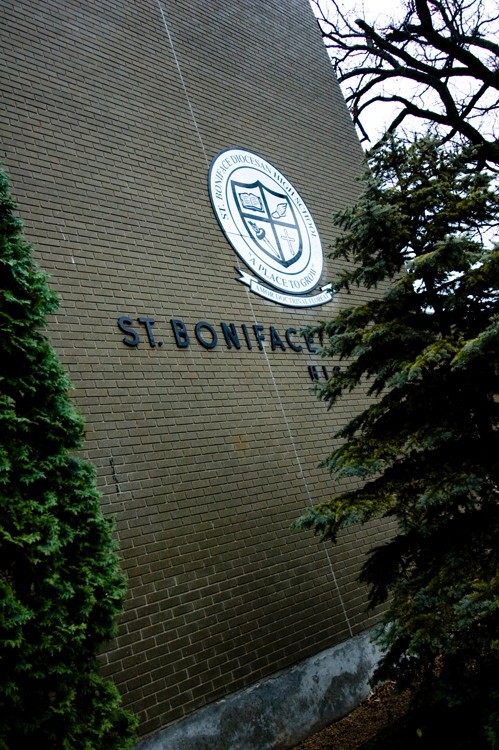Slacking off in sex ed
Government subsidized private schools given too much leeway on sex education, critics say
In high school, the pressure to change who you are, and the struggle to fit in, can consume everything. It can linger from the moment you enter Grade 9, right up until graduation.
And no one knows that better than Kay Heatherington.
“Everyone disagrees with (my) lifestyle,” the 15-year-old said. “It feels kind of like a struggle.”
Heatherington started Grade 9 at St. Boniface Diocesan High School, a private institution, as a devout Catholic. Over a year later, she has come out as a lesbian and an atheist to her parents and school community.
“They don’t really believe in who I date or what I talk about,” she said of the school, adding that she often feels alienated by Catholic teachings on sex and sexual education.
“They keep telling us to be chaste and not to have sex until marriage,” she said. “We’re not learning what we need for our real sexual lives.”
As of September 2009, there are 104 recorded private or independent schools in Manitoba, teaching just over 14,000 students.
Over 13,000 of those students are enrolled in 60 government-subsidized independent institutions.
These schools, because they meet provincial standards, receive 50 per cent of their funding from the government and are required to teach the Manitoba curriculum – a curriculum that includes sex education.
“Most schools will provide resources for teachers to address it (sex education) in accordance with their beliefs,” said David Yeo, the Manitoba provincial director of education administrative services.
Yeo added that controversial issues like sex education and the required teaching of evolution must achieve prescribed learning outcomes. How those outcomes, such as the importance of sexual responsibility, are met is ultimately up to the school.
Robert Praznik is the director of Catholic Education for the Archdiocese of Winnipeg, which oversees some of the largest Catholic schools in the province.
“We have to be aware of Catholic teachings when we’re dealing with controversial subjects,” he said, adding that in order to meet sex education requirements in Grades 5 and 7, schools in his Archdiocese have pooled their resources with Catholic schools all over Canada.
“It (our program) ultimately meets the provincial outcomes,” he said.
However, Pope Benedict XVI and the upper echelons of the Roman Catholic Church continue to vocally oppose contraceptive use, masturbation and premarital sex.
Chad Smith, executive director of the Rainbow Resource Centre, believes that funded independent schools should be given less autonomy on matters of sexual education.
“If you are receiving public funding and there’s a provincial curriculum that’s mandated, sex ed should be fully covered,” he said, adding that schools should inform students about all sexual orientations and gender identities.
“We have youth that come into the centre where their parents, their school and their community don’t know they’re coming in,” he said. “I think for lots of kids, especially when they’re queer kids, inadequate sex education can result in misconceptions of what their sexuality means.”
Heatherington, despite her day-to-day struggles, has no problem expressing herself.
She could go to a public school if she wanted to, but chooses instead to stick with the familiar.
“I grew up with these kids,” she said, adding that she’s been friends with a number of students for years. “If I went to a public school I’d have to get to know everyone all over again.”
Published in Volume 65, Number 9 of The Uniter (October 28, 2010)







